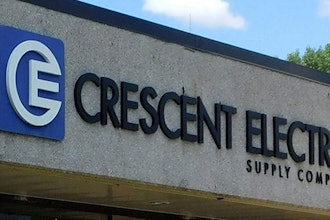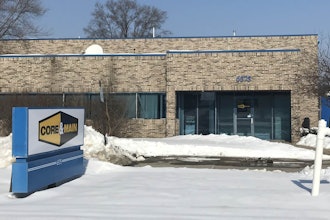PHILADELPHIA (AP) — An in-house accountant who raised a red flag about a tax lapse that his employer then ignored, leading him to tip off the IRS, has received $4.5 million in the first IRS whistleblower award.
The accountant's tip netted the IRS $20 million in taxes and interest from the errant financial-services firm.
The award represents a 22 percent cut of the taxes recovered. The program, designed to encourage tips in large-scale cases, mandates awards of 15 to 30 percent of the amount recouped.
"It ought to encourage a lot of other people to squeal," Sen. Charles Grassley told The Associated Press. The Iowa Republican helped get the IRS Whistleblower Office authorized in 2006.
The IRS mailed the accountant's lawyer a $3.24 million check that arrived in suburban Philadelphia by first-class mail Thursday. The sum represents the award minus a 28 percent tax hit.
The lawyer, Eric L. Young of Blue Bell, won't release the name of his client or the firm because his client remains a small-town accountant, and hopes to continue to work in his field.
"It's a win-win for both the government and taxpayers. These are dollars that are being returned to the Treasury that otherwise wouldn't be," Young said.
"It's very difficult to be a whistleblower," said Young, who has represented more than a dozen such tipsters, including one in a $2 billion Pfizer case involving off-label drug marketing.
"Most people would be inclined to turn a blind eye to it. The process can be time-consuming, arduous and stressful, from both a personal and professional standpoint," he said.
The accountant filed a complaint with the IRS in 2007, just as the IRS Whistleblower Office opened, but heard nothing for two years. Frustrated, he hired Young to help push the issue.
"We were able to help him get it back on track," Young said.
In the accountant's case, the IRS did not deem the issues he raised complex. But the agency said the information he shared pointed out new questions for a routine IRS audit that was already under way.
The Whistleblower Office received nearly 1,000 tips involving more than 3,000 taxpayers in fiscal years 2008 and 2009, according to its annual reports to Congress. Hundreds of them alleged tax underpayments of more than $10 million, and dozens more underpayments of $100 million or more.
The accountant's case is the first in the program to reach fruition.
"Quite frankly, I'm shocked that they finally got around to using it," said Grassley. He has been discouraged by the program's slow start, which some blame on ambivalence about whether tipsters should receive potentially huge windfalls. The IRS may also fear embarrassment, the senator said.
"When you got a whistleblower that's saying somebody didn't pay $20 million in taxes, that that's an embarrassment to the full-time employees of the IRS," he said.
Neither Stephen Whitlock, director of the Whistleblower Office, nor the agency's public affairs office returned messages about the program late Thursday.
However, the annual reports note a new policy of waiting to pay awards until the two-year window for taxpayers to appeal their payments has expired. Young's case might therefore be the first in a series of awards that are ripe for payment.
The office has about 17 employees, who refer complaints to IRS agents and investigators around the country to pursue. Before 2006, the IRS could choose to reward tipsters, but were under no obligation to pay them a share of the taxes recovered. Many of the tips involved mom-and-pop operations or ex-spouses.
The whistleblower program only promises awards for returns of $2 million or more.
"This law is not designed to snag the guppies, but to harpoon the whales," said Patrick Burns, president of Taxpayers Against Fraud, a Washington, D.C.-based nonprofit whose members include many lawyers for whistleblowers.
"Whistleblower programs have been incredibly successful in the arena of health care and defense spending, and now they are being tried as a weapon against tax cheats and Wall Street scoundrels," Burns said.


















